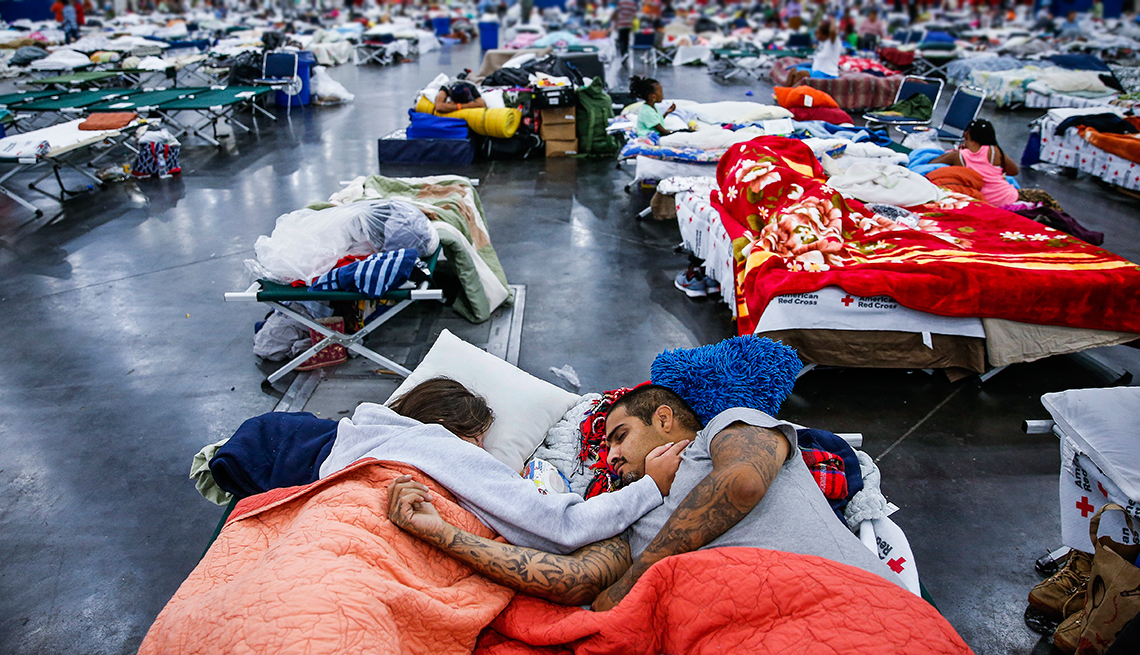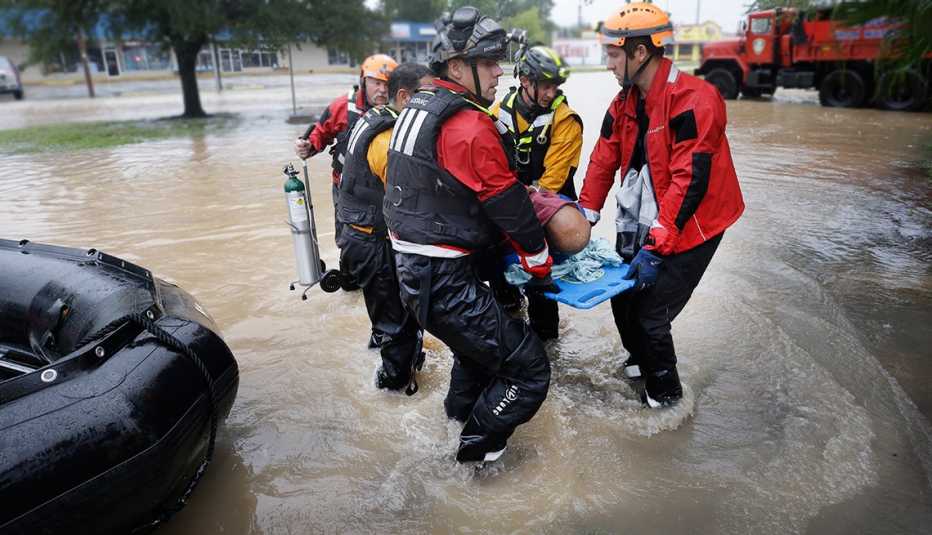Staying Fit
| Thousands of people rescued from rooftops and plucked from rising water had to leave everything behind when Hurricane Harvey hit Houston last year. For many, prescription drugs were among the items they abandoned. The same may happen to those fleeing the potentially devastating Hurricane Florence, expected to make landfall in the Carolinas and Virginia later this week.
Being without essential medicine for days can pose a health threat and adds to the sense of panic people feel during such emergencies — especially natural disasters.


AARP Membership— $12 for your first year when you sign up for Automatic Renewal
Get instant access to members-only products and hundreds of discounts, a free second membership, and a subscription to AARP the Magazine.
That's why your hurricane preparation should include making sure that you have enough medication to last for a few weeks. Even if your prescription isn't up for refill yet, many states permit pharmacists to make medically necessary exceptions during an emergency. State laws in North Carolina and South Carolina, both now in official states of emergency due to Florence, allow pharmacists to refill a prescription, as much as a 30-day supply, during a natural disaster without a doctor’s authorization. (That’s for the majority of medications labeled Schedule III or IV; the law is more rigid for Schedule II drugs, considered to have a high potential for abuse, such as morphine, fentanyl and codeine.) In Virginia, the state of emergency declaration notwithstanding, pharmacists are allowed to dispense only certain medications without a doctor's approval, and only if the medication is due for refill within the next 7 days.
Because you might be evacuated or stuck at home for days after the storm due to flooding, it's important to have at least a two-week supply, says Barbara Young, editor of patient medication information at the American Society of Health-System Pharmacists.
If you have had to evacuate, have run out of medication and are no longer near your usual pharmacy, it is easy to transfer the prescription to a different location. Most pharmacies allow you to switch your prescription to a different store by phone or in person; in the case of major drugstore chains such as Walgreens and CVS, you can also change your pickup location online.
And it doesn’t have to be to a store within the same company; you can move your prescription from a CVS in Virginia to a Walgreens in Pennsylvania, for instance. Either take your prescription bottles with you or keep on hand a list of your medications, including their names, dosages, how often you take them and the name of the prescribing doctor, Young suggests. "It's useful information for both emergency personnel and pharmacists," she says.
People who are able to gather their medicines before evacuating their homes may be concerned about drugs that require refrigeration. It’s important to check with medical experts or a pharmacist for advice. In the case of insulin, one of the most common drugs stored in the refrigerator, Young says that it's better to leave it at room temperature than to put it on ice and risk it freezing. If insulin freezes, it needs to be discarded. The Food and Drug Administration says insulin retains its potency unrefrigerated for as long as 28 days.
Drugs that have been exposed to flood water or unsafe tap water should be discarded, too, as they might be contaminated. If you are facing heavy rains and flooding, put your medications in a resealable plastic baggy.


































































